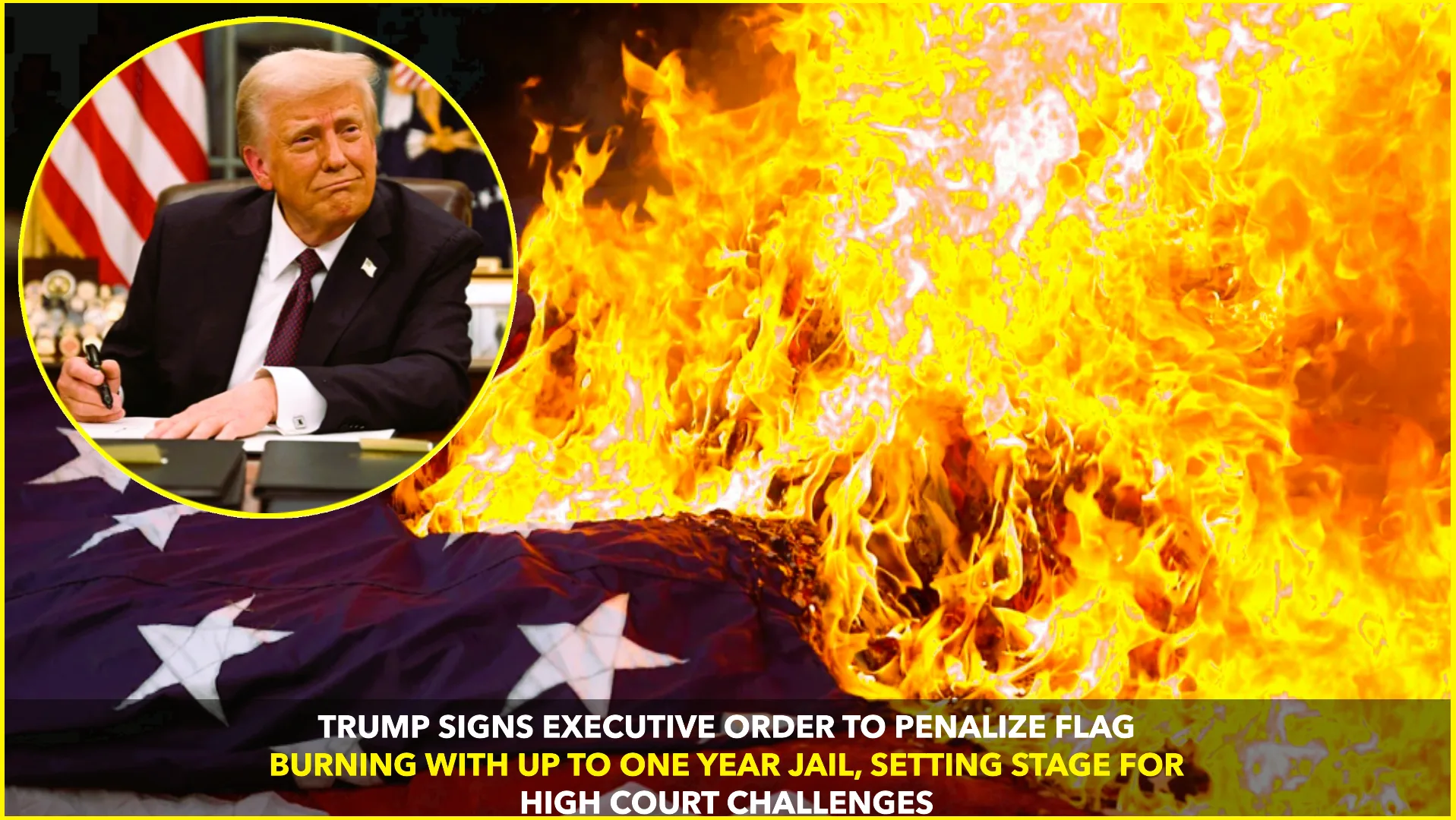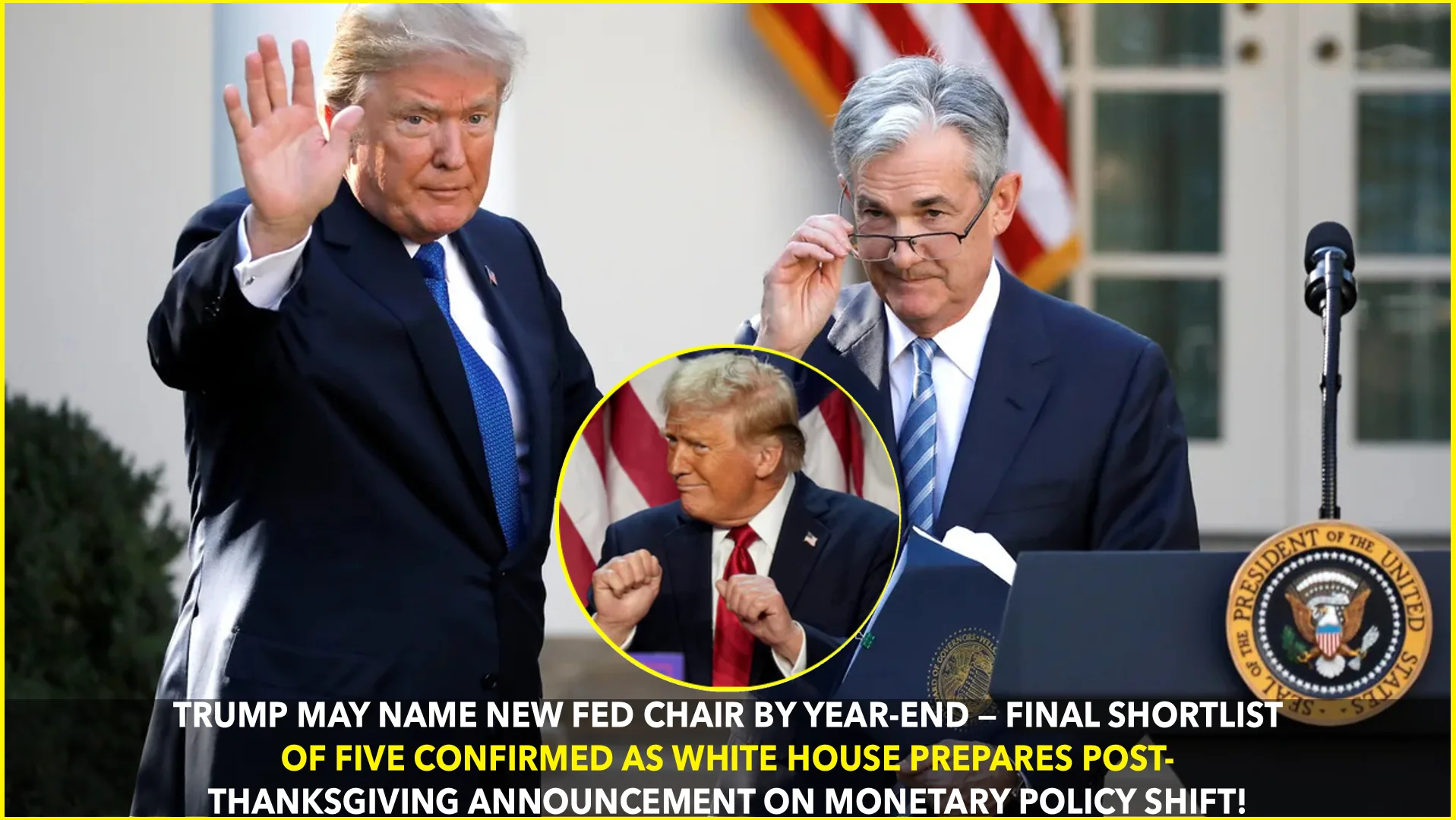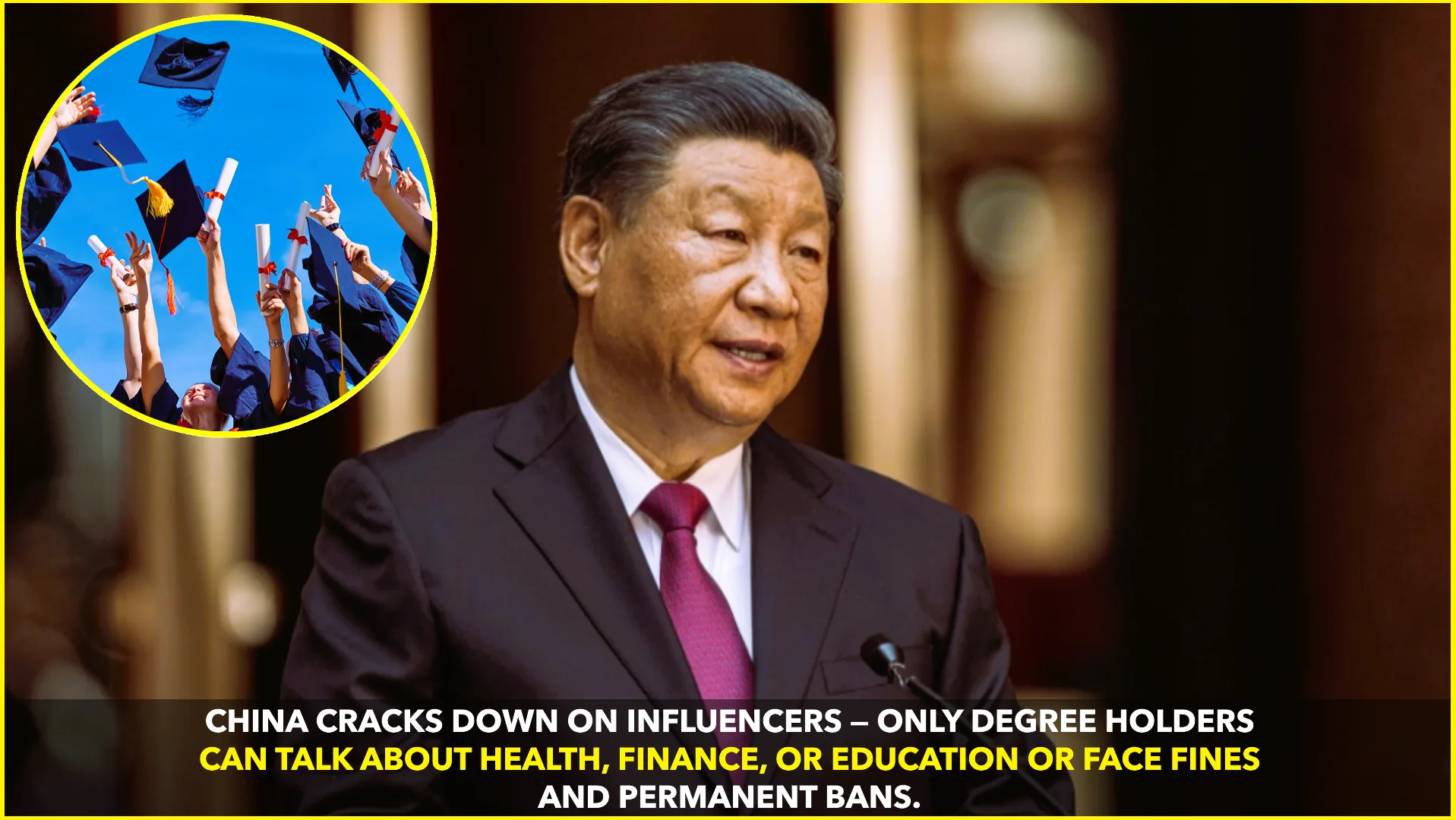Presidential Order Targets Flag Desecration
Washington, August 25, 2025 — President Donald J. Trump signed an executive order aimed at penalizing flag burning, including proposals for up to one year in jail for violators, and directing broad enforcement actions to preserve the sanctity of the American flag.
The order, titled Prosecuting Burning of the American Flag, characterizes the flag as America’s most sacred symbol, stating its desecration may incite violence and undermine national unity.
It instructs the Attorney General to prioritize prosecuting cases where flag burning violates existing content-neutral laws—such as those against property damage, hate crimes, and disorderly conduct—and to refer incidents to state or local authorities as needed.
The executive order also authorizes immigration authorities to revoke visas or citizenship pathways for foreign nationals who desecrate the flag under circumstances permitting such action The White HouseAP News.
Jail Time Claim vs. Legal Reality
During the signing event, Trump declared: “If you burn a flag, you get one year in jail…, and it goes on your record”—though the executive order itself does not specify any mandatory prison sentence.
Snopes and other fact-checkers confirmed that while Trump repeatedly advocated for a year-long jail term, the actual order does not impose that minimum penalty as a statutory requirement SnopesThe Daily Beast.
Constitutional Clash: Supreme Court Precedent
The move directly challenges a landmark U.S. Supreme Court ruling from 1989, Texas v. Johnson, which held that flag burning constitutes symbolic speech protected by the First Amendment. A follow-up 1990 ruling in United States v. Eichman reinforced that conclusion.
Trump’s order seeks to navigate constitutional limits by targeting flag desecration only in circumstances that might fall outside protected speech—for example, when it “incites imminent lawless action” or qualifies as “fighting words”.
Legal experts, including scholars from groups like the Foundation for Individual Rights and Expression (FIRE), warn that prosecuting flag burning remains fundamentally unconstitutional if it’s used as political protest, regardless of government objections to its symbolism AP NewsSCOTUSblogTIME.
Reactions & Implications
Civil liberties advocates swiftly criticized the order. Robert Corn-Revere, chief counsel at FIRE, emphasized that existing Supreme Court protections cannot be overridden by executive action.
Even some right-wing commentators, typically aligned with Trump, voiced concern that the order infringes on constitutional free speech rights. Broadcasters like Dana Loesch and Jesse Kelly branded it “garbage,” warning it may push people to burn the flag in protest of perceived overreach.
A man recently burned a flag near the White House in protest of the order. He was arrested—not under desecration laws—but for violating federal park fire regulations, highlighting the gap between intent and enforceable law CBS NewsAP NewsThe Times.
What’s Next?
Legal scholars expect that any enforcement effort could be challenged all the way to the Supreme Court—now more conservative than in 1989, with three justices appointed by Trump himself. Some see this move as a direct attempt to overturn or limit Texas v. Johnson.
Despite Trump’s rhetoric and promise of a one-year jail sentence, the order provides no new statutory penalties—instead urging enforcement through existing laws. That nuance may ultimately shape how courts interpret its legality SnopesThe Daily Beast.
Summary
Trump’s August 25, 2025 executive order pushes for criminal prosecution of flag burning under existing laws and challenges constitutional precedents. While the President promised jail time, the text stops short of creating new penalties. Civil liberties groups warn of constitutional violations, setting the stage for a high-stakes legal battle over free speech in America.










